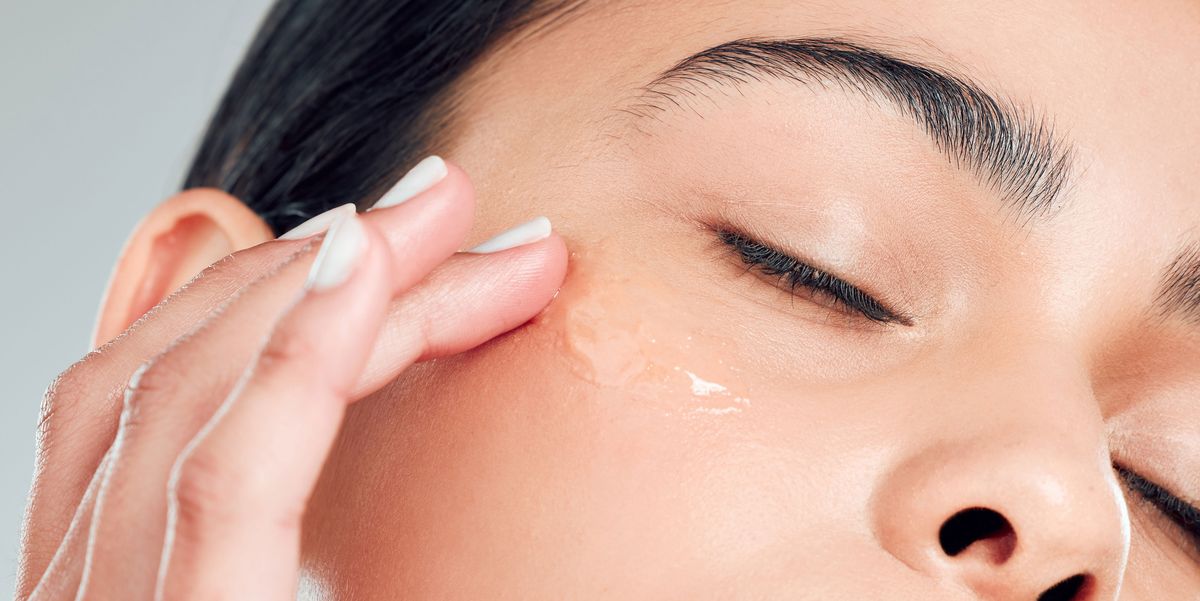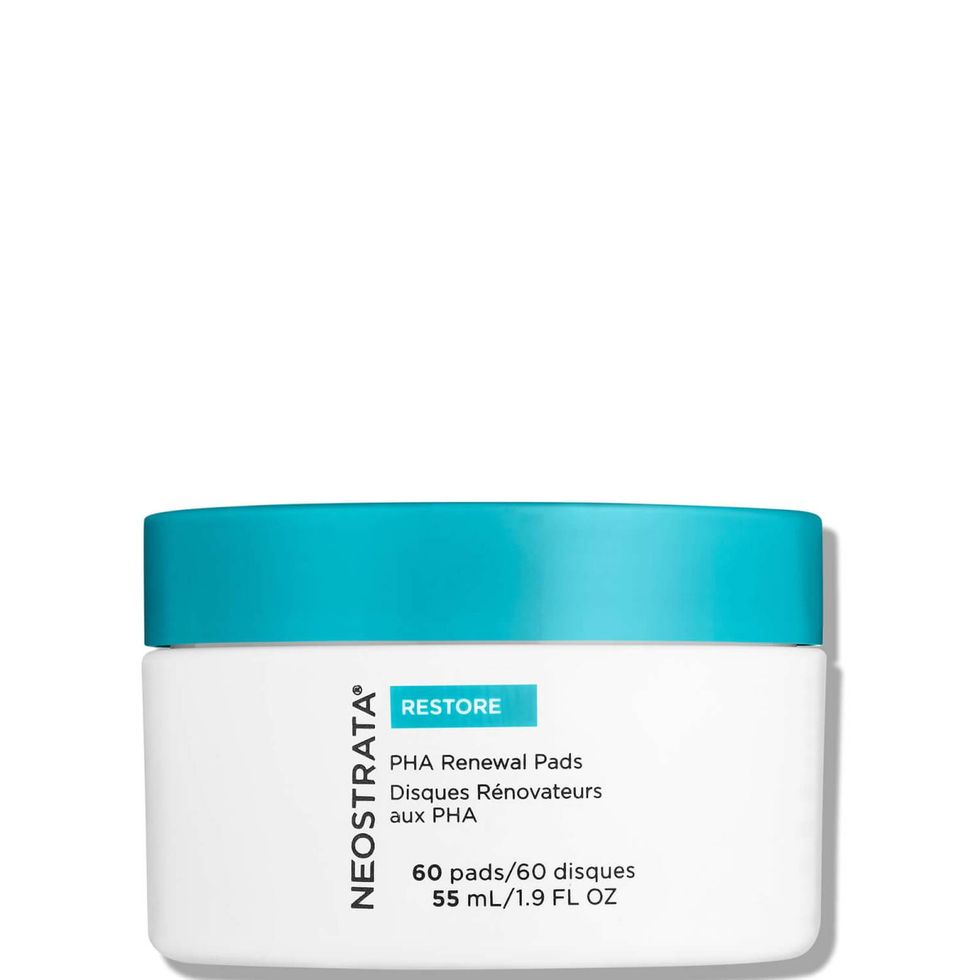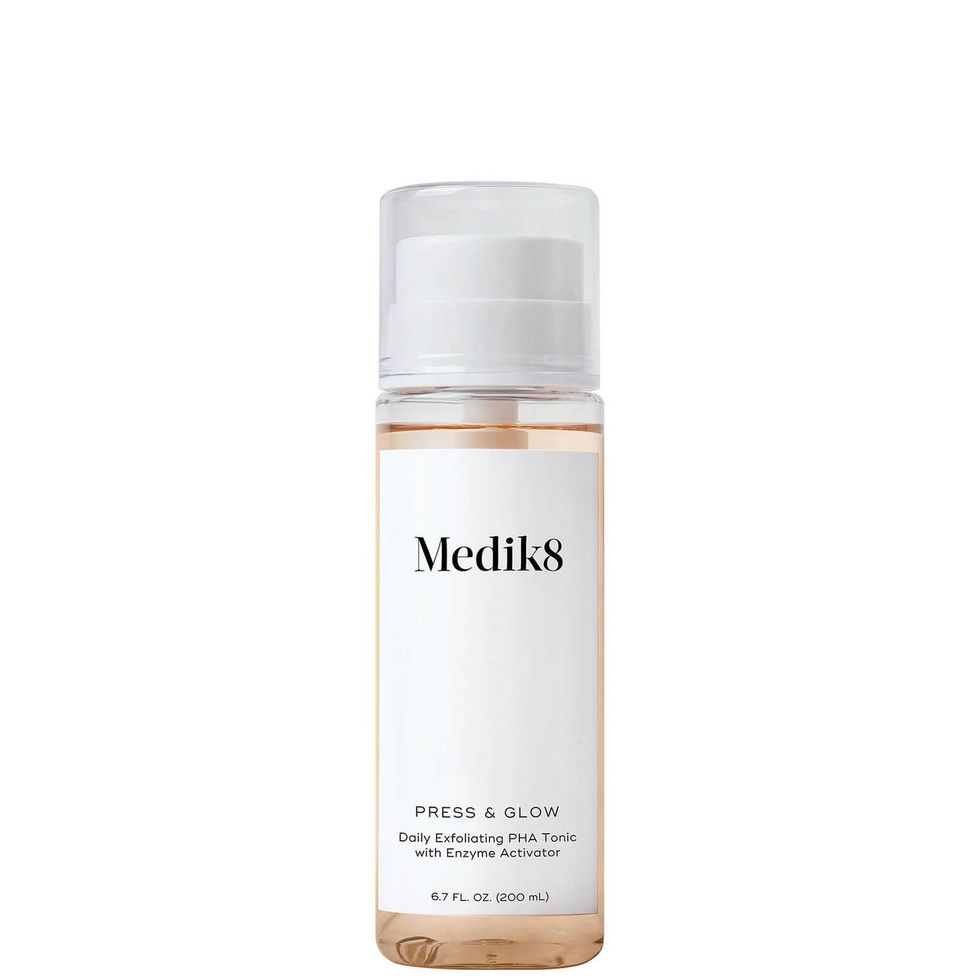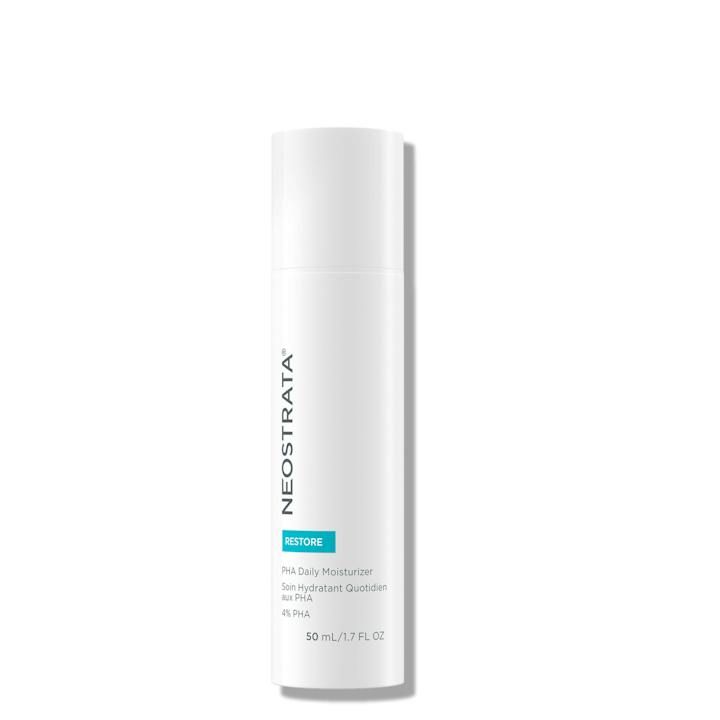Products You May Like
A true skin care obsessive can identify ingredients and products by their acronyms. You shield your skin from harmful UV rays using sun protection factor (SPF) and boost hydration by employing a hyaluronic acid serum (HA). However, at the forefront of every skin junkie’s rotation is likely powerhouse products that work to address uneven texture and tone and slough away dead skin that you’ve likely Googled using just three letters: Alpha hydroxy acid (AHA) and beta hydroxy acid (BHA).
Like an often overlooked black sheep, the acid group has another potent three-letter member garnering some much-deserved praise recently and will surely be added to your search history: polyhydroxy acids (PHAs). Before you head down a rabbit hole of research on PHAs, we did the hard work for you by polling dermatologists for the 4-1-1 on the buzzy ingredient and its benefits for your skin.
What are polyhydroxy acids, and how do they work?
Similar to AHAs and BHAs, PHAs gently exfoliate to reveal smoother, brighter, clearer skin. “PHAs are exfoliants that break up bonds between old skin cells in the top layer of the skin and gently exfoliate them. They have humectant properties, meaning that they hold water onto the skin, which helps to hydrate. They also work as antioxidants to protect skin from free radical damage and help prevent the breakdown of collagen by inhibiting MMPs (enzymes that degrade collagen),” says Dr. Madeleine Gantz, an Austin, Texas-based board-certified dermatologist at Westlake Medical. While AHAs and BHAs penetrate deep into the skin, PHAs work at the surface level to reduce the appearance of texture and uneven tone.
“Beyond exfoliation, PHAs provide moisturizing properties and improve the skin barrier,” says Dr. Heidi Prather, a board-certified dermatologist at Westlake Medical in Austin, Texas. The primary types of PHAs are gluconolactone, lactobionic, maltogenic, gluconic acid, and zinc gluconate.
“These ingredients—gluconolactone or lactobionic acid—can also provide antioxidant benefits. This combination of properties lends itself to a synergistic ingredient that can be used with acne, brightening, or anti-aging treatments without additional irritation. It is also safe for all skin types,” Dr. Prather adds.
How do PHAs differ from AHAs and BHAs? How are they similar?
“Both PHAs and AHAs are water-soluble exfoliants that help improve texture, pigmentation, and radiance. However, PHAs are larger molecules, so they don’t penetrate as deeply as AHAs, which means that they are less likely to cause irritation,” explains Dr. Prather.
Dr. Gantz adds that “hydroxy acids, in general, provide exfoliative properties that help enhance the absorption of other products, treat acne, brighten skin, and create a skin glow. However, the exfoliative effect can irritate patients with sensitive or compromised skin.” This is where PHAs come in. “PHAs have additional humectant properties that create more hydration in the skin and limit the irritation seen with traditional AHAs/BHAs,” Dr. Gantz says.
Who would be a good candidate to use PHAs in their skin routine?
Since PHAs are less likely to irritate the skin, they are a good choice for anyone looking to improve their tone and texture.
Who should stay away?
If you have any active skin irritation, Dr. Gantz recommends holding off. The type of exfoliant you use depends on your skin type and concerns. “If you have more oily and acne-prone skin, you may benefit more from choosing a BHA, like salicylic acid, that can absorb into sebum or oil, be more aggressive in exfoliation, and penetrate deeper into the skin although may lead to more irritation,” Dr. Prather suggests.
How often should you use them?
Like any potent skincare ingredient, gradually building up your tolerance is the best practice. “I tell patients to start three nights per week and see how their skin responds. If they become irritated, drop down the frequency. The important thing is to listen to your skin and not overdo it,” Dr. Gantz advises.
Can PHAs be used with retinol?
Short answer? Yes, according to Dr. Gantz, “as long as your skin is tolerating retinol, it’s okay also to incorporate PHAs.” Long answer—PHAs are perhaps one of the best exfoliants to use in tandem with retinol. “PHAs are an excellent ingredient to enhance the effects of retinol products, such as anti-aging and acne, without increasing irritation. PHAs are large molecules and result in more hydration and gentle chemical exfoliation of the skin. PHAs are rich in antioxidants that help enhance epidermal repair and collagen preservation,” adds Dr. Prather.
Meet The Experts
Dr. Heidi B. Prather is a board-certified dermatologist at Westlake Medical in Austin, Texas, specializing in cosmetic and procedural dermatology.
Dr. Madeleine Gantz is a board-certified dermatologist at Westlake Medical in Austin, Texas, specializing in medical dermatology.
Why Trust ELLE Beauty?
Nerisha Penrose is the Beauty Commerce Editor at ELLE.com. Since joining ELLE.com in 2017, she has interviewed countless skincare professionals and has personally tested the latest and greatest products across makeup, skincare, and hair care. For this piece, she consulted dermatologists to learn more about polyhydroxy acids and their benefits in skin care.
Beauty Commerce Editor
Nerisha is the beauty commerce editor at ELLE.com, covering all things beauty (and fashion and music). She has a penchant for sneakers and nude lip glosses, and spends way too much time re-watching 90s sitcoms.

![Pore Cleansing Oil [PHA] Pore Cleansing Oil [PHA]](https://hips.hearstapps.com/vader-prod.s3.amazonaws.com/1701204135-Hanskin_Pore_Cleansing_Oil_PHA_PDP_1_860x.jpg?crop=1xw:1xh;center,top&resize=980:*)


